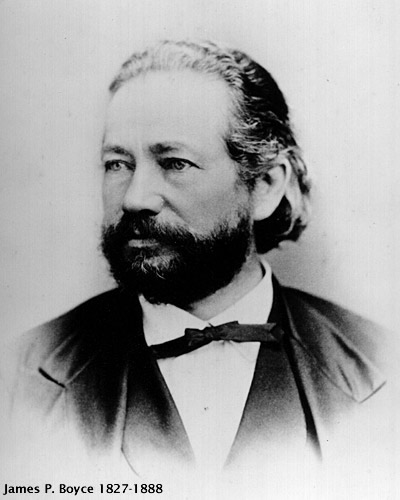In May 2012 a group of Southern Baptist Convention (SBC) leaders posted a statement on the “Traditional Southern Baptist Understanding of God’s Plan of Salvation.” The statement defended man’s free will in accepting Christ’s offer of salvation, and highlighted what is now the key theological division within the country’s largest Protestant denomination. With SBC conservatives having largely taken control of denominational leadership and seminaries from moderates and liberals by the 1990s, the debate over Calvinism, including predestination, election, and God’s sovereignty in salvation, is now one of the SBC’s most fractious, pitting camps of theological conservatives against one another.
The statement generated an indignant response from many SBC Calvinists, and also from some SBC leaders who think the denomination should focus on areas of unity. (Frank Page, the current president of the denomination’s Executive Committee, as well as the leaders of the International Mission Board and the North American Mission Board, declined to take sides on the statement.)
Some have raised concerns about the statement’s portrayal of Calvinism, but what I’ll focus on here is the problematic historical stance of the authors, especially in calling free will the “traditional” Southern Baptist position on soteriology (the theology of salvation). To be fair, the authors note that Calvinism has played a role in Southern Baptist life from its “earliest days,” although they do not say whether they mean the emergence of English Baptists in the early 1600s, or the founding of the SBC in 1845. In either case, Calvinists have always been a major factor, but especially if you include the first two hundred and fifty years of the movement, Calvinism arguably has been the dominant theology among English and American Baptists.
This makes dubious the assertion that free will is the “traditional” position. If we were talking about Methodism, by contrast, Arminianism would undoubtedly be the “traditional” position, as Methodist founder John Wesley was rigidly anti-Calvinist, and broke fellowship with the great evangelist George Whitefield over the issue. (The SBC authors, as I understand it, do not wish to be called Arminians.)
But from its origins, the Baptist movement was divided between “General” and “Regular” or “Particular” Baptists over the issue of election (was Christ’s atonement only for the elect, or was it offered to all?). In America, Baptists who believed in a general atonement became a decided minority, especially after the Great Awakening of the mid-eighteenth century, as Calvinistic Separate Baptists, emerging from the revivals, became the most dynamic segment of broader Baptist life.
The statement also acknowledges that “some earlier Baptist confessions were shaped by Calvinism,” but this is an understatement. Of course, there were General Baptist confessions, but the Calvinistic London Baptist Confession of 1689, and the nearly identical Philadelphia Confession of 1742, exercised a dominant influence, even as Baptist churches spread to the American frontier. For instance, in 1785 the new Elkhorn Baptist Association of Kentucky adopted the Philadelphia Confession, which affirmed that “by the decree of God, for the manifestation of his glory, some men and angels are pre-destinated, or fore-ordinated to eternal life, through Jesus Christ, to the praise of his glorious grace; others being left to act in their sin to their just condemnation, to the praise of his glorious justice.” Although the 1833 New Hampshire Baptist Confession was more moderate, it too remained Calvinist.
Think of all the Calvinistic Baptists, including Baptist leaders from the South, that we must regard as “non-traditional” if this statement is correct: John Bunyan, Isaac Backus, David George (the pastor of the first enduring African American congregation in America, the Silver Bluff Church in South Carolina), Charles Spurgeon, James Petrigru Boyce…the list could go on and on.
Spurgeon, James Petrigru Boyce…the list could go on and on.
Baptists have long engaged in vigorous debates about Calvinism, and there has never been a unifying Baptist position on the issue. It is one thing for Baptist non-Calvinists to argue that theirs is the biblical position on soteriology–and there is indeed a sound argument to be made for the general atonement and other aspects of the non-Calvinist position. But it is another thing to claim the “traditional” label for free will. It is unclear what the signers mean when they say “it is time to move beyond Calvinism as a reference point for Baptist soteriology,” but with such a strong historic legacy and, apparently, with growing numbers of Baptist adherents, it is not likely that Baptist Calvinism will go away any time soon.












